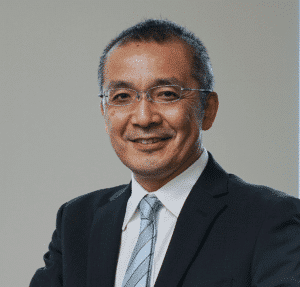In the last few years, HR has increasingly found itself caught between leadership that wants workers back in the office and employees who are seeking more flexible working environments. One of the industries most likely to mandate in-office work is pharmaceuticals, with a recent survey finding that about 90% of leaders at pharma companies prefer their employees to work in person. Tokyo-based Astellas Pharma is pushing back on this trend.
Katsuyoshi (Kats) Sugita, Astellas chief people officer and chief ethics and compliance officer, says the company’s commitment to providing a flexible working environment is helping the multinational organization attract and retain top talent. As Astellas continues to grow—it has completed more than a dozen acquisitions in recent years—the employee value proposition will become more critical than ever, Sugita says. While flexibility may be a selling point, he notes, the workforce also collectively embraces transformation—and prioritizes continuous learning, including from the employees of acquired companies—which are aiding Astellas in building a workforce of the future.
During a recent visit to Astellas’ Boston location, Sugita sat down with HR Executive to share more about the company’s vision for growth.
HR Executive: As Astellas has undergone acquisitions, where has your focus been regarding company culture?
 Sugita: Our approach is a little bit different from other companies. We always say to all those people at the acquired company: “Please don’t make too much adjustment to your culture.” Rather, we really want them to keep their own original, innovative culture, their creative culture, their maybe more independent culture. We acquire much smaller-sized companies, and their culture is quite different; usually, they show much more ownership or more risk-taking behaviors. Our company is a middle-sized company and very well established, which means sometimes we’re not great at risk-taking or ownership. So, we want to learn from those acquired companies and their employees.
Sugita: Our approach is a little bit different from other companies. We always say to all those people at the acquired company: “Please don’t make too much adjustment to your culture.” Rather, we really want them to keep their own original, innovative culture, their creative culture, their maybe more independent culture. We acquire much smaller-sized companies, and their culture is quite different; usually, they show much more ownership or more risk-taking behaviors. Our company is a middle-sized company and very well established, which means sometimes we’re not great at risk-taking or ownership. So, we want to learn from those acquired companies and their employees.
HR Executive: How is the company’s flexible working environment impacting talent attraction and retention?
Sugita: We have global colleagues and pretty much a location-free policy about employment.
Many other pharma companies have changed their policies, including many competitors that are now requesting their employees come to the office three days a week, maybe four days a week. We don’t have any of those inflexible policies. In our case, it’s up to you. Some employees come to the office just once a quarter, or maybe once a year or sometimes, and that’s OK. We really just want to see their outcome delivery. We also trust and believe in each individual. So far, I really think people really like this, and newcomers have said many times that our super-flexible way of working is very attractive. People have decided to join us—not fully because—but in part because of this policy, and after joining, they really enjoy the flexible approach.
HR Executive: You have written that you’re committed to putting people at the front at Astellas. How do you bring this to life in your work?
Sugita: I really think talent is everything now, and if we acquire great talent, and if we retain good quality people, then we can make things happen. On the other hand, if we cannot attract great talent, we’ll be in trouble. How to attract talent, and how to be the most attractive employer, that’s the key, key point for us.
I think our flexible work environment is one [talent attraction] option. And we really want to attract people with a patient-first mindset who can enjoy all the changes, the challenges, the transformation. We want to attract and retain those individuals for the company’s future.
HR Executive: How have the skill sets needed for HR success changed in recent years?
Sugita: I think some parts [of requisite HR skills] have really changed, and some parts really didn’t change. Fundamentally, as HR leaders, we always need to have a good sense of business understanding and know how to drive business. That type of mindset is critical. Usually, HR is a bit reactive, and maybe from now on, HR really has to be much more proactive. We need to be making proposals to the business, and to do so, we really need to understand all the business conditions, the direction and maybe the pain points. Then we can make some proactive proposals to the business. Especially these days, we also need an understanding of technologies, including AI. In the past, HR may not have really understood all the data or the numbers, but today we need to use AI and technologies quite effectively.
HR Executive: Who most influenced the type of HR leader you are today?
Sugita: My first supervisor was a really great role model. This was 30-some years ago, and he was very business-driven, data-driven. And he requested me to deliver results. That really impacted me a lot. He showed me the importance of having real business impact. I was lucky. From that time in my 20s, I started thinking about, what’s the final business impact if I do this? Or, what if I don’t do this? I learned how important business understanding is, and how with that, we can have some conversations with other business leaders.


